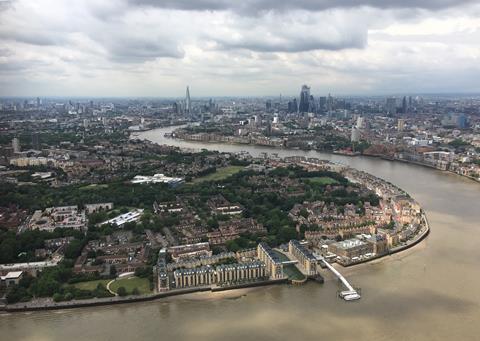Michèle Dix says thousands of homes can be unlocked across London if ministers take steps to get infrastructure schemes started

Decision-making bottlenecks in the corridors of Westminster are holding up the delivery of thousands of new homes in London, according to the head of Crossrail 2.
Speaking at last week’s London Infrastructure Summit Michèle Dix said Crossrail 2 could unlock 200,000 homes, but uncertainty around decisions on major infrastructure schemes meant their residential potential was being missed.
“Making decisions now is vital,” Dix said. “Homes are needed now. We need to start building these homes now. We need political commitment to these schemes.”
Peter John, leader of Southwark council in south London, said government “paralysis” had to change and highlighted another transport-led scheme where indecision was proving to be a factor.
John said the £3.5bn Bakerloo line extension to Lewisham in south-east London “has the ability to unlock 20,000 homes along the Old Kent Road”, but that less than half of these were in planning as questions remained over the future of the project.
“There are developers lined up but what will happen without the line being built? This is no way to run a capital city,” he added.
The Bakerloo line extension is part of Sadiq Khan’s transport strategy, which was published in 2017.
Work on running the line down to Lewisham is due to be completed in 2029, based on construction kicking off in four years’ time.
And as well as calling for boroughs to be given greater powers to plough more cash into projects London’s deputy mayor for planning Julian Pipe said there had to be a more integrated approach to tapping into existing planning consents for utilities, green space and transport projects.
“An uncoordinated approach causes delays to too many schemes. We have to ensure that water, energy, digital aspects and so on are all integrated.
“We can do it on large scale projects. King’s Cross and the London Olympics show what can be done.”
Pipe said the mayor of London’s high-level infrastructure group, had been established “to address the bleeding obvious.”
“We need to tackle the apparent reluctance around co-ordination on big projects,” he added.










No comments yet